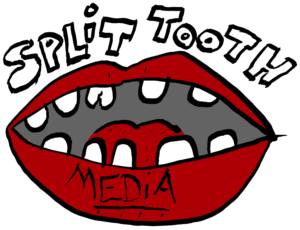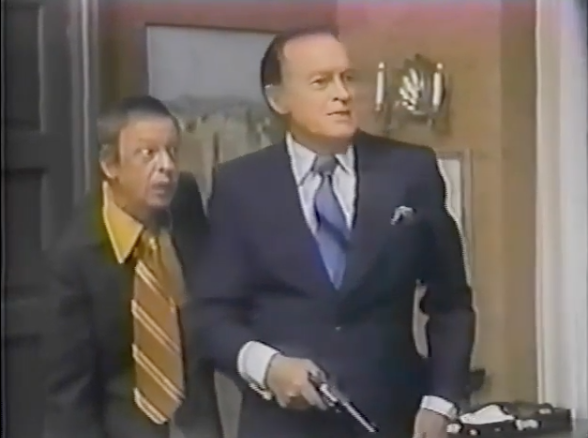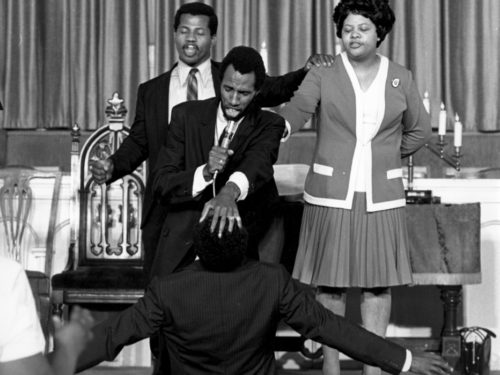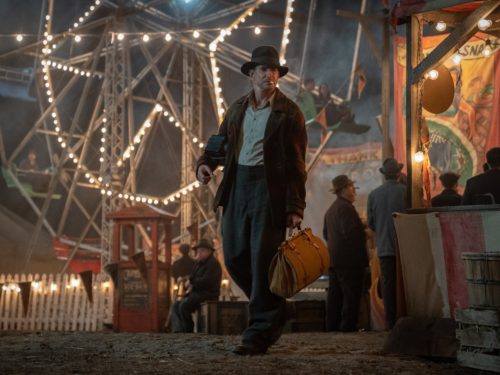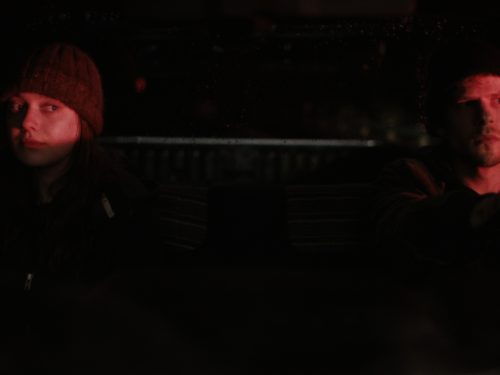Which is scarier: the whims and wounded ego of a fading Vaudevillian or the pitiless hands of a prowling killer? Joys!, surely among the most bizarre of Bob Hope’s many TV specials, dares to ask that question
Joys!, the second of 1976’s four Bob Hope TV specials, is scary, but not because its black-gloved killer picks off several dozen comedy legends. The special’s trouble starts with its name, a joke that wouldn’t read at all if it weren’t explained to us. In theory, it’s a bizarre reference to Steven Spielberg’s Jaws, which had recently broken box office records and made a star of its director. All the more bizarre is who explains the title and premise. Vincent Price, among the most stentorian of American actors, is tasked with approximating whatever tough-guy, regional accent makes Jaws and Joys sound alike. It’s analogous to the special itself, a grasping attempt at both humor and relevancy that totally fails on the latter count and only unintentionally succeeds on the former. It’s not very funny, not at all conventionally scary, and utterly embarrassing in any of its attempts to seem hip, but Joys is a must-see for anyone with even a passing interest in even a handful of its cast members. A few are still with us, most have passed throughout the intervening decades, and still others (most notably, Groucho Marx) list the special among their final appearances. Watching “a sinister human shark” commit “crimes against comedy” may not have been much of a selling point in 1976, but now Joys serves as a one-of-a-kind resource, a record of where these entertainers were when a malfunctioning robotic shark changed movies forever. Woefully dated long before its airdate, the bizarre program is an often harrowing reminder that — famous or obscure, rich or poor, straight man or cut-up — death’s pitiless hands come for all of us.
Throughout the special, those hands come for Milton Berle, Red Buttons, Don Knotts, and a murderer’s row of their contemporaries during a cocktail party at Bob Hope’s home. In many instances, those gloved hands function like a cane, mercifully yanking a performer offstage long after they’ve lost their audience; Scatman Crothers, for his part, is dispatched by an actual cane. As their bodies crowd Hope’s pool, an entire generation of entertainers becomes chum for a Hollywood eating machine. The film’s on-screen deaths are played exclusively for laughs; some serve as explicit punchlines. Jimmy Walker, for example, gets pulled to his doom just seconds after Milton Berle (besides Hope, the cast’s favorite punching bag) comments on his “great future.” Several others use their final moments to mug one last time, most get a laugh. Those insistent shots of the pool, however, prove consistently frightening. Along with the special’s eight (equally grim) Texaco ads, they provide the rambling special with something like a structure.
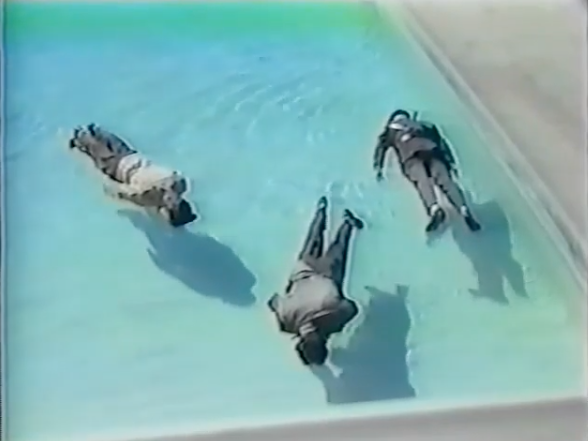
Hope’s opening monologue, at turns genial and embittered, includes a bizarre pronunciation of its own. “It’s Oscar time,” Hope sneers, “Hollywood’s disgusting ego or-ghee.” The master of ceremonies pronounces the second syllable of “orgy” like the clarified Indian butter, reflecting a discomfort or perhaps a total unfamiliarity with the word. Hope famously quipped that the Oscars ceremony was known as “Passover” in his home, owing to his lack of official recognition from the Academy (nevermind the dozen-plus hosting gigs and five honorary awards). It seems his patience had finally run out by the mid-’70s, though he’d return to preside over one last ceremony in 1978. To be fair, Steven Spielberg was airing his grievances with the Academy around this time too.
Steve Stoliar makes it clear that Hollywood self-satisfaction was just one of Hope’s targets during the making of Joys. His book Raised Eyebrows: My Years Inside Groucho’s House includes a brief dispatch from the set. In addition to relating the bittersweet experience of seeing an ailing Groucho trade jokes with George Burns and a greasepaint-moustached Billy Barty, the author describes Hope’s on-set behavior:
After one particular take he suddenly flew into a rage, convinced that his hair looked bad. He made the engineer run the videotape back and forth, while he carefully scrutinized his hair . . . He screamed for the hairdresser to come out and watch the videotaped replay of the previous take. “Jesus Christ! Look at that!” Hope demanded, giving the hairdresser a dressing down.
Per Stoliar’s account, the tirade continued for some time and exposed “a side of Hope [he’d] heard about, but had never seen,” a vain monster waiting for an opportunity to strike. Gutter horror auteur Rob Zombie was briefly attached to direct a film based on Stoliar’s book and perhaps that’s fitting. This sad, strange interlude in Groucho’s life sounds to have possessed the uneasy atmosphere and sudden tonal shifts of a horror film.
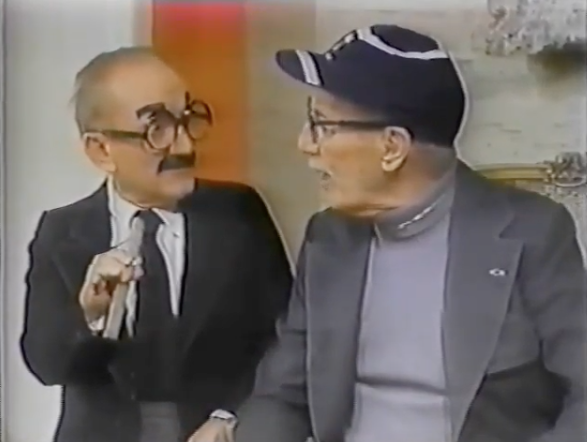
Bob Hope’s short fuse may have made for tension on set, but it’s an exceptionally long fuse that makes for most of the tension on screen. We watch the killer light it just after the special’s second commercial break, as Hope arrives home with a passed-out Foster Brooks in his backseat. We’ll see it again and again throughout the special, tracing its slow and inevitable progress toward Hope and his surviving guests. Hope’s predicament attracts the attention of several TV detectives, but neither Kojak (Telly Savalas), Ellery Queen (Jim Hutton), nor Phil Fish (Abe Vigoda) ever makes note of the explosion awaiting them all. Each shot of the fuse injects more bleak dramatic irony into the proceedings. We’re reminded again and again that even Hope’s younger guests aren’t long for this world. Freddie Prinze, Charo and Jimmie Walker would become victims of a changing entertainment industry before long. Prinze, uncomfortably famous from age 19, would die by his own hand in 1977; Walker’s catchphrases alienated him from castmates and he’s now among the lesser-known Hollywood Conservatives; and Charo became a symbol of overexposure by the late ’70s who’s today most recognized from nostalgic cable entertainment (I first saw her on VH1’s The Surreal Life).
Though a sense of imminent death pervades Joys, its ads (seven of which feature our star) are practically utopian. Texaco, Hope informs us, spares no expense when it comes to developing new techniques and “earning [our] trust.” He takes us out into oil fields and down into wells, all the while reminding us that Texaco is a uniquely innovative and benevolent corporation. Best of all, it’s a company that promises to free us from our dependence on “inferior foreign oil.” Watching a smiling Hope pitch “advanced oil extraction” as the path to a boundless future is bleak stuff, utterly nightmarish. In an election year where even (and sometimes especially) the Democratic nominee is misty-eyed at the thought of a self-fueling country, it’s clear the nightmare isn’t over.
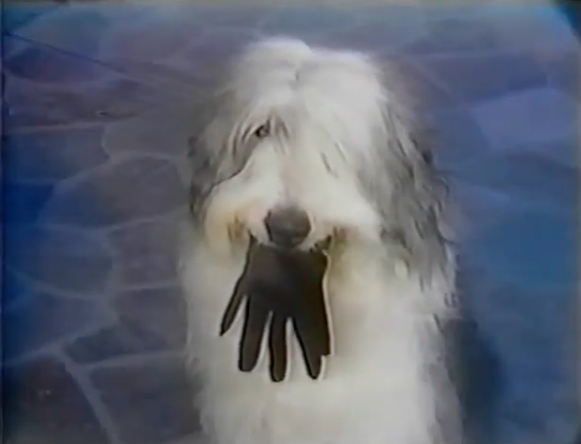
So, who lit the fuse and committed all those “crimes against comedy”? Vincent Price doesn’t live to tell us, but the killer unmasks shortly after claiming that one last victim. Sitting among the studio audience, Johnny Carson hints that fears of being replaced have driven him to murder. No less than a God in this world of regular talk show guests, Carson proves just as wrathful when he feels disrespected. His final punchline, “Now I’ll get to host my show every night,” suggests the killings weren’t meant to hasten the comedy’s evolution by culling the herd. Rather, they helped Carson to freeze time at arguably the height of his stardom. You might say the effort paid off. He would supplant Hope on the Academy Awards stage that same year and soon replace him as the ceremony’s go-to emcee. Though the majority of his victims have faded into some level of obscurity, Carson remains an indelible figure of the era, an avatar for showbiz whose reputation has remained largely intact. One wonders what might have happened if Jay Leno or Billy Crystal had been in attendance.
Find more October Horror 2020 here:
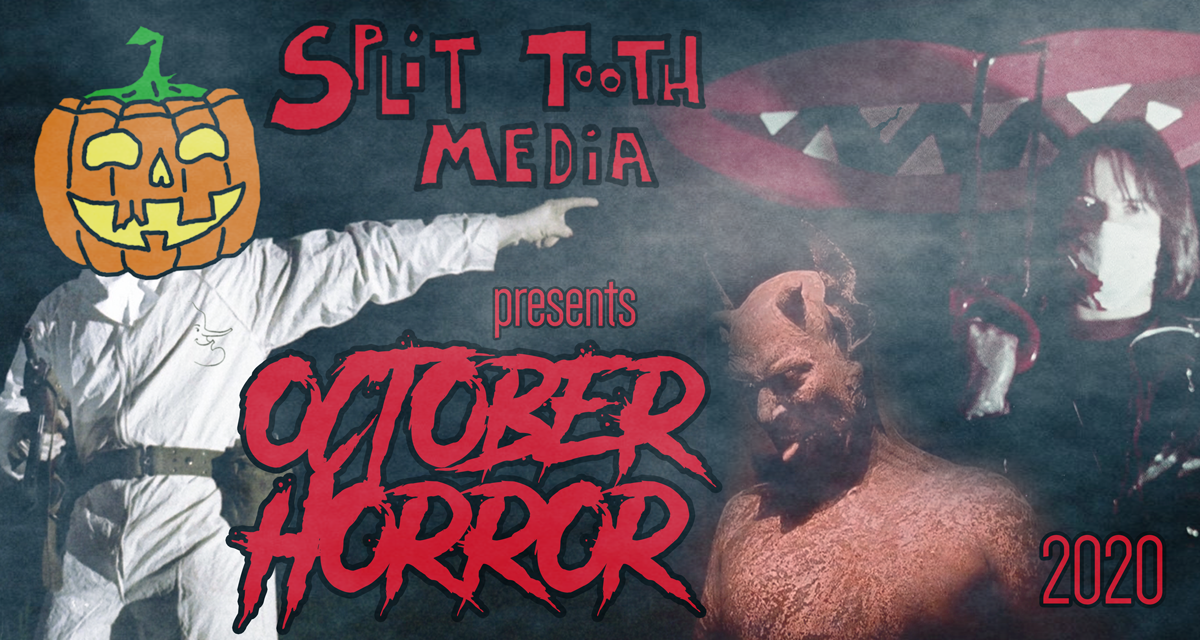
Follow Bennett and Split Tooth Media
(Split Tooth may earn a commission from purchases made through affiliate links on our site.)
